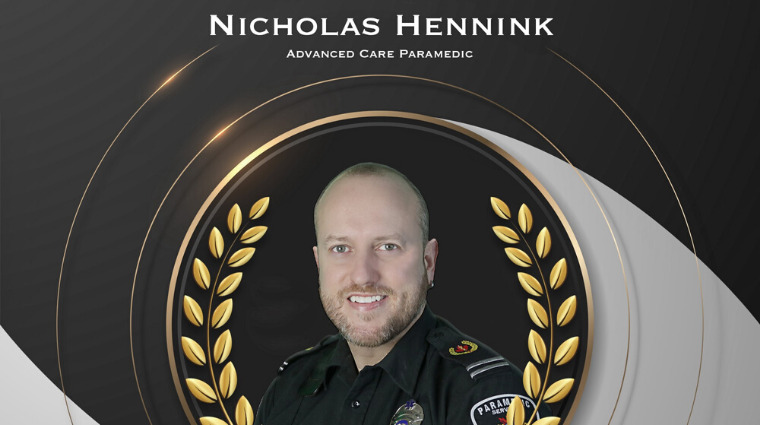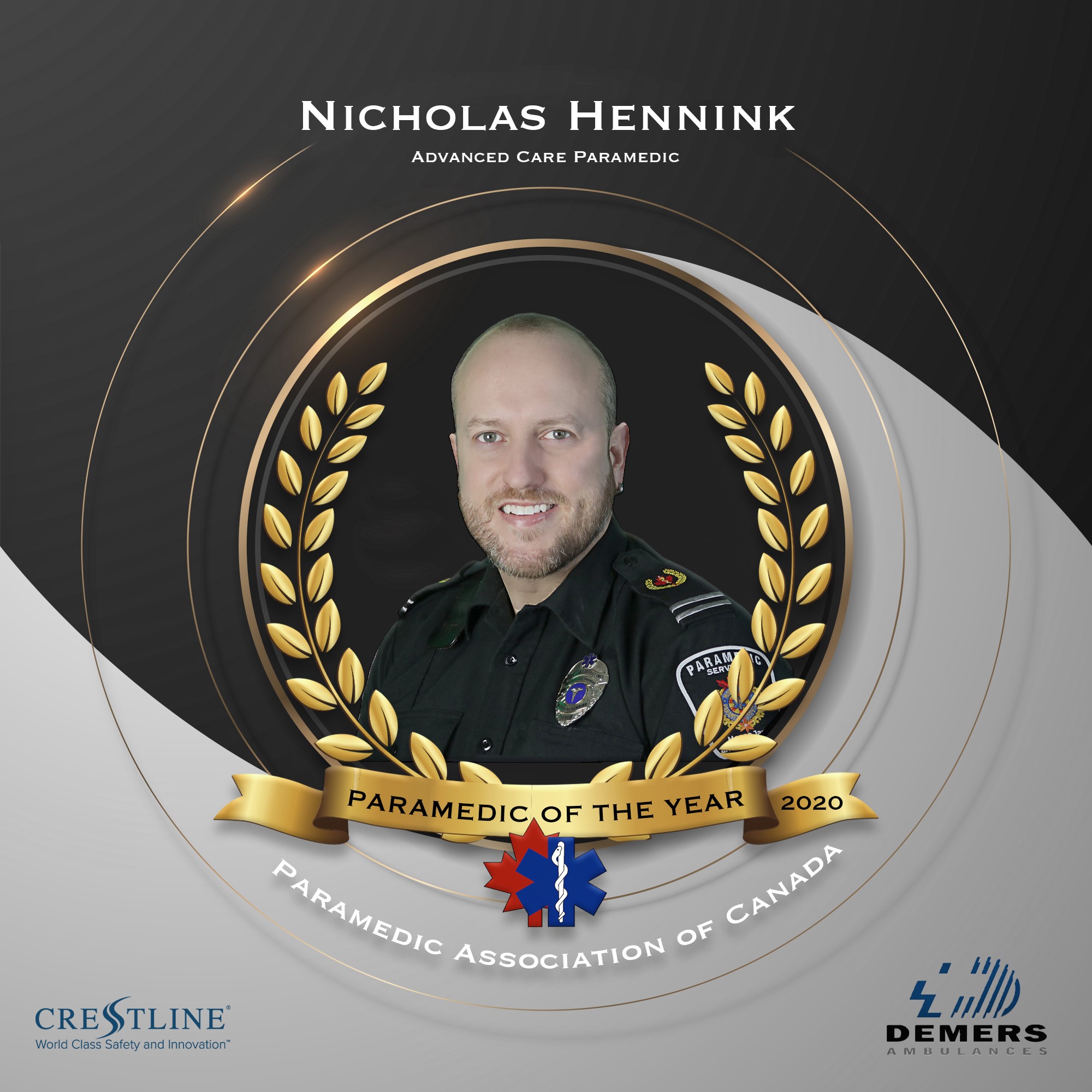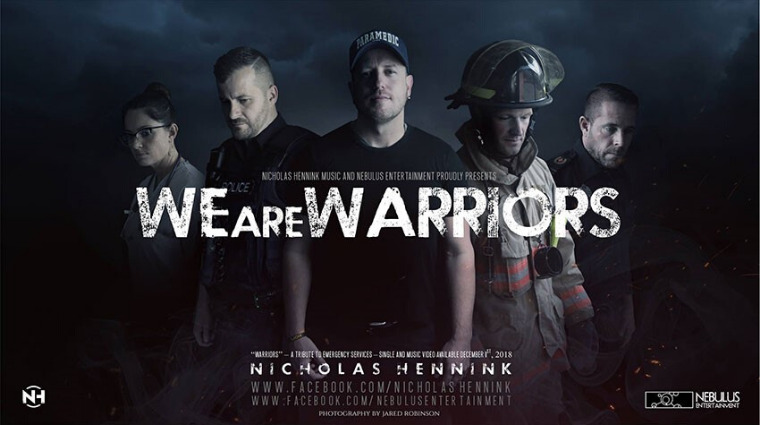
Saskatchewan Polytechnic alumnus Nicholas Hennink has been named Canada’s 2020 Paramedic
of the Year by the Paramedic Association of Canada. The award recognizes an active,
frontline paramedic who has made a recent, considerable contribution to the paramedic
profession. It’s the third time in recent years that a graduate of Sask Polytech’s
paramedic programs has received the national honour.
“It’s such a great feeling to be chosen by your peers. It’s a validation of what I’ve
been trying to do,” Hennink says.
Hennink has launched Project Warrior, a campaign to raise awareness and funds for
first responders seeking professional help. What’s unique about Project Warrior is
that it uses music as a catalyst. Hennink teamed up with producer Jared Robinson on
a song called “Warriors,” a hard rock tribute to Canada’s emergency services personnel.
A five-minute video made with actual first responders continues to rack up thousands
of views on Hennink’s We Are Warriors YouTube channel.
Project Warrior is endorsed by the Saskatchewan Health Authority, Canadian Mental
Health Association, and Saskatchewan Emergency Medical Services Association. Funds
raised are donated to Operational Stress Injuries Canada, which supports first responders
and their families and is part of the CMHA.
“Warriors” not only pays tribute to the life-saving services provided by first responders,
it also sends of a message of solidarity to first responders: “Don’t give up, don’t
be afraid/There’s a world out there that needs you/You’re the brave, the chosen few/Got
your back, we’ll make it through.”
“Don’t give up, don’t be afraid.”
According to Hennink, the lyrics are about the struggles many first responders face,
particularly with job-related post-traumatic stress disorder, or PTSD. Hennink is
speaking from experience. He graduated from Sask Polytech’s Advanced Care Paramedic
(ACP) program in 2013 and is currently an ACP with Moose Jaw and District EMS. But
one of the things he enjoys most about his chosen career is also one of the hardest.
“I get to help people through their darkest moments. That’s the upside of being a
paramedic,” he says. “You also see things the average person doesn’t see—a lot of
trauma and end of life moments. Over time, that trauma, if we ignore it and let it
build up inside, can cause damage. I was one of those people.”
Ignoring job-induced stress and trauma led to mood swings, depression and anxiety.
“I didn’t know where those feelings were coming from; then I started having nightmares
and night sweats. I didn’t know what to do because there’s always been this stigma
among first responders about having depression or anxiety. You don’t want to be seen
as weak,” he says.
Hennink did something to deal with his issues, but it was the wrong thing: he turned
to alcohol. It was a dark time in his life, but he says it was his daughter that finally
led him to rehab. “I wanted to be a good dad. I also wanted to be a good paramedic,
a good colleague, and I can’t do that if I’m struggling,” he says.
“Got your back, we’ll make it through.”
Hennink is not alone is his experience. A survey published in the Canadian Journal
of Psychiatry found that 45% of Canada’s first responders screened positive for symptoms
consistent with operational stress injury—over four times higher than the general
population at 10%.
Paramedicine is evolving to recognize the importance of mental health. In July 2019,
WorkSafe Saskatchewan partnered with the Saskatchewan First Responders’ Mental Health
Committee to provide mental health resources for first responders, including confidential
support lines and self-assessments.
“At Sask Polytech, we know that mental health education is a critical part of our
health sciences and nursing students’ education,” says Sandra Blevins, dean for the
School of Health Sciences and School of Nursing. “All three paramedicine programs
(Primary Care Paramedic, Advanced Care Paramedic, Community Paramedic), provide knowledge
and skills on coping with operational job stress and managing personal wellness.”
“We didn’t have that when I started,” Hennink says. “Now, new trainees are told there
will be struggles, that you need to talk about mental health issues. We push it in
training.”
Hennink remains a full-time paramedic, but he also continues to use music to raise
awareness of mental health issues among first responders. “Music helps me deal with
what I went through and what I’m always going to go through, just as part of life,”
he says. “I still love being a paramedic, but there’s always going to be hardships.
We need to support each other.”
Learn more about Sask Polytech’s paramedic programs: Primary Care Paramedic certificate, Advanced Care Paramedic diploma and Community Paramedic advanced certificate.


Published May 2020.

